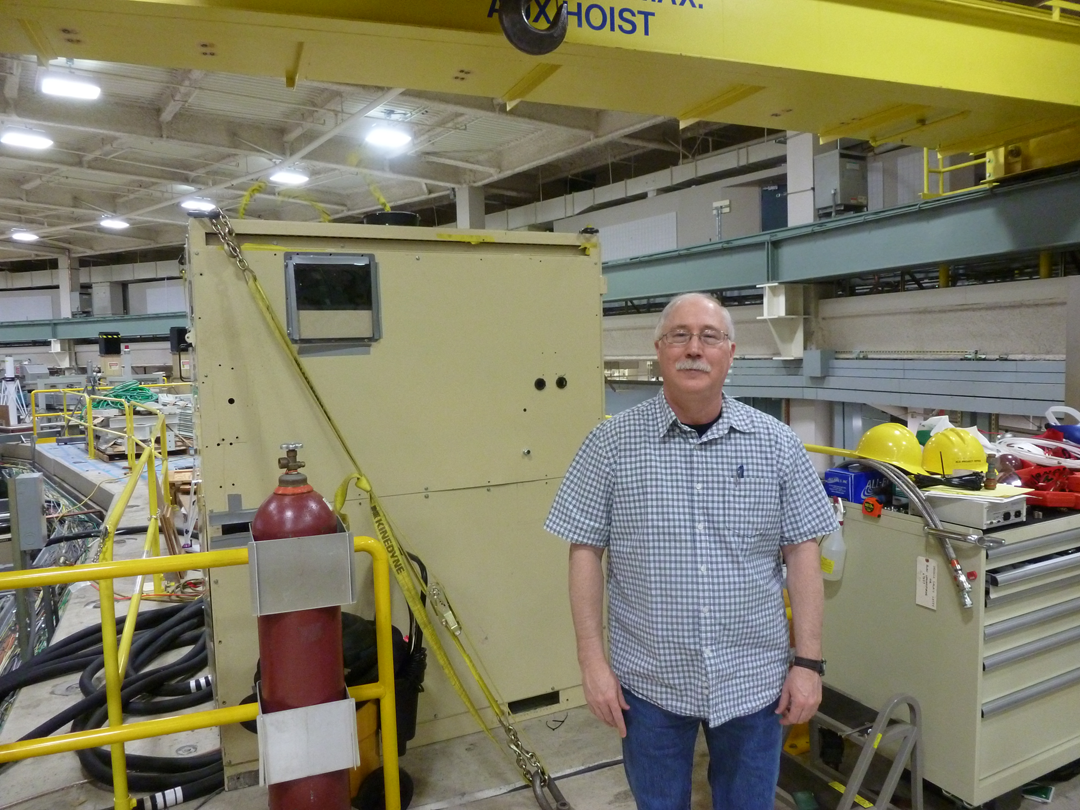 The recent ALS power supply failure was one of the most challenging projects that Electronics Engineer Technical Superintendent Tim Kuneli has worked on in his 12 years at the ALS. And judging by how quickly ALS engineering and accelerator physics staff resolved the issue and the ingenuity involved in the fix, it may also be one of the most successful projects he’s been involved in.
The recent ALS power supply failure was one of the most challenging projects that Electronics Engineer Technical Superintendent Tim Kuneli has worked on in his 12 years at the ALS. And judging by how quickly ALS engineering and accelerator physics staff resolved the issue and the ingenuity involved in the fix, it may also be one of the most successful projects he’s been involved in.
“There were easily 15-20 people involved and we had to really look at what we needed and then configure, test, and reconfigure to make it work,” says Kuneli. “We were up and running again in less than a week.”
Kuneli came to Berkeley Lab as an electronic maintenance tech 15 years ago, after serving 11 years active duty in the Navy and eight years for General Electric, where he worked as an electronics calibration technician. In 2003, Kuneli retired from the Navy Reserves after achieving the rank of Senior Chief Petty Office. After working for the Lab’s central shop and for the Spallation Neutron Source Project (SNS), he was then assigned as the lead in the electronics maintenance shop at the ALS in 2002. In 2003 he became the electronics maintenance supervisor for the ALS. He’s also a member of the Lab’s electrical safety review committee and supervises all the techs on the hill.
The shop runs 24/7 except during shutdowns, when the seven employees’ times are aligned with scheduled shutdown projects. Kuneli and his team take care of all ALS electronics maintenance, making sure machines are running properly, troubleshooting new equipment, and supporting users’ electronics and equipment needs. Preventive maintenance is also a big part of his job, and that will hopefully get easier in the near future with a new database that will automatically schedule regular ALS maintenance tasks.
There are no “typical” days for the electronics maintenance shop, or the installation and fabrication shop that employs a staff of three and runs concurrently downstairs. Their tasks are driven by what’s happening at the ALS and what users need. If there’s new equipment coming in to the ALS, Kuneli’s team does extensive safety testing before it’s installed. If users are having trouble with equipment setup, Kuneli or someone from his team help them troubleshoot the problem.
During this shutdown, Kuneli’s team will be working on installing new power supplies, controls upgrades, the radio frequency upgrade, changing water interlocks, and some smaller safety projects. Kuneli notes that one of the challenges particular to the ALS is finding repair and replacement parts for older equipment.
“This job is unique in that you can be here 20 years and still not know about everything,” Kuneli says. “There’s so much to do and learn that you never get bored.”